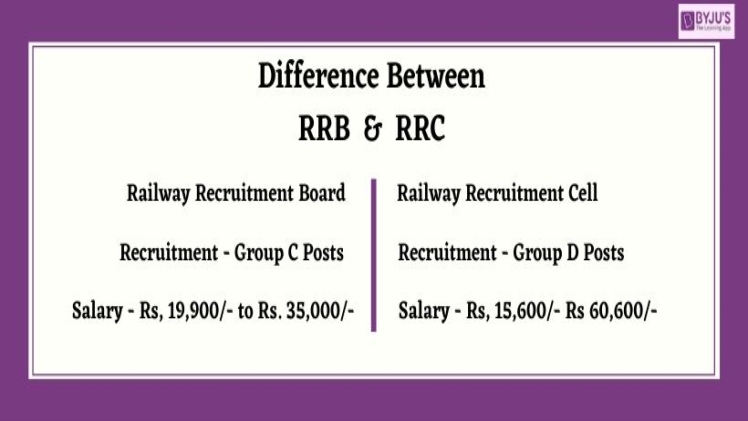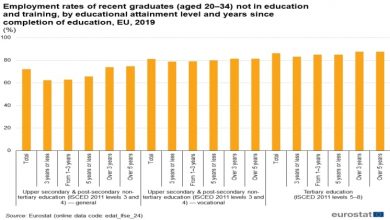How are RRB Group D and RRB NTPC Different From Each Other?

Two of the most important and popular government exams in India are the RRB Group D and RRB NTPC exams. RRB stands for the Railway Recruitment Board which conducts various exams to recruit candidates for different positions in the Indian Railways across India. The RRB Group D exam is conducted for various technical positions like Track Maintainer Grade-IV, or a Helper/Assistant.
On the other hand, the RRB NTPC exam is conducted to recruit non-technical professionals for positions such as Goods Guard, Station Master, Commercial Apprentice, and more. But this is not the only difference between the two prestigious exams. Let’s dive deeper to understand how are these two exams conducted by RRB different from each other.
| RRB Group D | RRB NTPC | |
| Eligibility | Educational Qualification: Candidates who have cleared 10th grade from an institution recognized by NCVT/SCVT or have been issued a National Apprenticeship Certificate (NAC) granted by NCVT are eligible.
Age Limit: Candidates who fall in the age group of 18 to 33 years as of 1st July 2019 are eligible to apply for RRB Group D. Age relaxations are also allowed for some specific categories. |
Educational Qualification: The educational qualification for the RRB NTPC exam varies from post to post. To know RRB NTPC educational qualifications in detail, visit RRB NTPC Eligibility.
Age Limit: For undergraduate level posts, a candidate should age between 18 to 30 years, whereas, for graduate-level posts, the minimum age limit is 18 years and the upper age limit is capped at 33 years. Besides this, the board has given age relaxation for the candidates belonging to the reserved categories. |
| Selection Process | Computer-Based Test
Physical Efficiency Test Document Verification (DV) Medical Examination |
Prelims CBT
Mains CBT Skill Test Document Verification Medical Examination |
| Syllabus | General Science: Chemistry, Physics, Life Sciences
Mathematics: Algebra, Ratio and Proportion, Number system, BODMAS,Decimals,Fractions,Time and Work, Time and Distance, Percentages, Mensuration, Simple and Compound Interest, Profit and Loss, etc. General Intelligence and Reasoning: Coding and Decoding, Relationships, Analogies, Jumbling, Syllogism, Conclusions and Decision making, Alphabetical and Number Series, Similarities and Differences, Venn Diagram, etc. General Awareness: Sports, Economics, Current affairs in Science and Technology, Culture, Personalities, Politics, etc. |
General Intelligence and Reasoning Syllabus: Analogies, Mathematical Operations, Coding and Decoding, Data Sufficiency, Venn Diagrams, Puzzle etc.
General Awareness Syllabus: Indian Polity and Governance, History, Geography, Economy, General Science, Current Affairs etc. Mathematics Syllabus: Number System, Decimals, LCM, HCF, Ratio and Proportions, Time and Work, Mensuration, Percentage, Elementary Statistics, etc. |
The Bottom Line
As you can tell, there are both similarities and differences between the RRB Group D and RRB NTPC Exam. The syllabus for both these exams is a bit similar. However, candidates also have to study General Science for the RRB Group D exam. Furthermore, the selection process has a few extra steps for the RRB NTPC exam and the eligibility criteria is also slightly different as per the demands of the positions.
Another crucial difference would be in salary. Candidates must research the positions they are interested in and find out the monthly and yearly salary and allowances that are offered for those positions. Therefore, candidates must decide carefully after a lot of consideration, which exam they wish to apply for. Don’t be in a hurry to fill the application form and
visit here for more info about Cool Animals
Lastly, candidates can subscribe to Byju’s Exam Prep to get access to unlimited learning resources including online coaching and numerous test series that will help you prepare for any competitive exam. So, what are you waiting for? Visit our website and take proper guidance from our esteemed faculty today!


